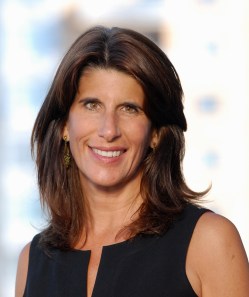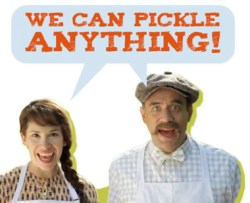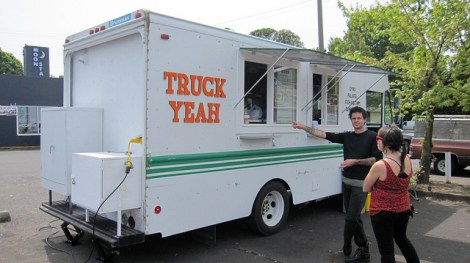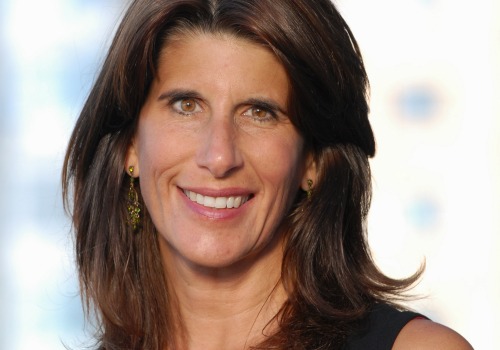Being the sustainability director of Portland is a bit like being the oil minister of Saudi Arabia. You don’t exactly run the place, but you do have the region’s chief export on tap. Portland’s public transit system is held up as a model for the country. Per capita carbon emissions are down 26 percent since 1990. Portland consistently tops lists for most bike-friendly city. The city even has an eco-pub.

Susan Anderson.
Of course, you already knew this, thanks to Portlandia. But show creators Fred Armisen and Carrie Brownstein should thank sustainability chief Susan Anderson: She’s been pushing the city in this direction since the early ’90s. Anderson started off at the energy office and was a key figure in its first climate action plan in 1993. She’s headed the sustainability department since 2000, and now runs the Bureau of Planning and Sustainability, the result of the Bureau of Planning merging with the Office of Sustainability in 2009.
“[Sustainability] doesn’t happen by chance,” she says. “There’s all the stuff that some people think of as the mundane side of city planning. But it’s the bones, the framework for allowing so much of this stuff to happen,” she says.
And just like Saudi Arabia’s future oil woes, Portland’s resources can dry up: The public transportation agency, TriMet, is facing up to $17 million in budget shortfalls next year. Even a place with designated ecodistricts has its challenges.
I talked to Anderson for the latest episode of Knope and change, our series about the women who are leading the charge to green our cities. Here’s our edited conversation about how Portland got to where it is today, some of the challenges it faces, and how it really stacks up against the caricature we see on TV.
Q. Your city will now forever be thought of as Portlandia. What’s the biggest mischaracterization in the show?

A. I always say it’s less of a parody and more of a biography. Our mayor is the mayor’s assistant [on the show]. What’s interesting are the parts that [make] people in other cities think, “Aw, I wish we were that place.” It’s not the over-the-top, goofy parts, but the human-scale part of Portland. It’s really walkable and there are restaurants on the corners and there are food carts everywhere. The air and water are generally very clean. You can recycle everything. Portlandia is a parody but a lot of those things are actually normal here.
Q. I think Portlandia sometimes paints sustainability as just a hipster thing. How have you been able to make sustainability relevant to low-income folks and the unemployed?
A. One: not talking about sustainability but talking about affordability. How do you make places where people can afford to get around without a car? You don’t need to own a car here. [Programs that increase] energy efficiency and water efficiency in households; putting affordable housing on transit lines; integrating sustainable building practices into public housing.
Q. Portland has had some pretty major struggles with unemployment.
A. It’s lower than the national average now. It’s been dropping in the past few months. I think when it was above the national average, people wanted to make it seem like, “Oh, Portland. You’re just like Portlandia. You’re all selling each other coffee and giving each other tattoos.” There’s probably some truth to that, but …
Q. How did Portland become such a leader in sustainability?
A. Part of it — you open your eyes and look outside and there’s Mt. Hood right there, and amazing mountains and rivers and fish. You want to protect all that. And part of it — we started really early. We had state-wide land-use planning starting in the ’70s, which no other state had. That required every city to do comprehensive plans to look at how jobs and the environment interact. How do you have good housing and healthier people and safer cities?
But we’re not doing [sustainability] just to be altruistic. Part of the reason we’re doing a lot of this: There’s money to be made, to be crass. There are hundreds and hundreds of companies in Portland that are manufacturing or offering services that are sustainable technologies or products or services. They are selling them to the rest of the world now. And most of these things are things we want to do to create better, healthier places anyway — but by doing that, you create a place where people want to live and have businesses. Seattle and Portland have had that as their economic development focus.

ShaunTruck Yeah, Portland, Ore.
Q. Seattle and San Francisco have mandatory composting. It’s interesting that some of your programs, like composting, are optional but successful.
A. They are and they aren’t. For [residential composting], it’s been a year as of [Wednesday]. The impact is a 40 percent reduction in garbage. People are composting. You don’t have to, but we’re only picking garbage up every other week. There are still people complaining, but people adapt and have learned that they can compost or recycle most of their stuff. I’m not against mandates, I just think there’s a lot of opportunity to build partnerships and to work on behavior change.
Q. What are the biggest issues facing Portland?
A. Health and education. We have a very highly educated, college-educated population but most of those people have come from somewhere else. I want to get kids through high school and I want them to go on to college. You don’t think about that as a sustainable issue but everything flows from there. …
How do we get all of the people who care about health to see the connections between healthy people and a healthy environment? Making sustainability about people’s personal health will be an excellent tool. Sometimes talking about climate change and air pollution — it’s scary. It’s the why for why we do these things, but focusing on how those same actions you would take — walking or riding a bike or taking public transit or green building for your home — all those things are about the health of you and your kids. That’s a motivator for more people.
Q. What have you learned from doing city sustainability for so long?
A. What I’ve learned over the past 20 years is America, and the world, is becoming a place where cities are going to make the difference. We can’t wait for national governments and even state governments necessarily to make large legislative changes. Those things take so long. Or they don’t ever happen, as we know with climate change. Because of gridlock and everything else in Congress, if we want stuff to happen, it’s going to be New York and Portland and San Francisco and even some other cities in the Midwest eventually that just jump in.
Q. When Minneapolis stole the title of “most bike-friendly city in America” in 2010, the mayor there was quoted as saying, “Portland is just an avenue in Minneapolis.”
A. Just an avenue in Minneapolis? Bah!
Healthy competition is great. The more Minneapolis bikes, the more we will too. The same with Seattle and San Francisco on any of these issues. I love when Vancouver says they’re the most sustainable city on the planet. Then I can go to my city and my councilmembers and say, “Oh yeah?”



